Rob Vasquez
While Grunge took over the world, this Seattle garage guitarist kept his songs stripped down and his profile low.
While the ’90s raged on and Grunge took over the world, one Seattle dude just kept doing what he’d always done: playing rock on cheap equipment while keeping a low profile.
Kinks-type riffs, thunder drums, fast changes—Seattle guitarist Rob Vasquez delivered the whole raw, gutter cocktail with his early bands The Nights and Days and The Night Kings, all the frantic yet melodic boom, bap, boom that fans of Iggy and The Stooges and MC5 want in their music. The terrible essence of Vasquez’s bands can be summarized with one of the most tired lines in music: How can someone so talented be so tragically underappreciated?
Like a lot of things in my youth, I missed Vasquez’s many bands while they were still playing. I didn’t even know he existed. I wasn’t cool enough to know the Northwest garage scene until years after the scene had cooled, and Vasquez’s bands rarely played too far outside of Seattle.
I found his song “Split” on the Sub Pop 200 compilation. It came out in 1988. I’d been lugging this CD around for over 20 years and never really replayed it. If I did, “Split” didn’t grab me. I probably hit ‘skip’ after a minute. When I played it one day in my late-30s it blew me away. I’d fallen for The Kinks and The Seeds. I’d fallen for ’90s garage bands like The Mummies, Gories, and Oblivians. The so-called third wave garage revival was raging in San Francisco at that time, and Thee Oh Sees and Ty Segall’s chord progressions sent me searching for bands like them. Then “Split” came on and I went searching for more Vasquez. He’d been there all along—in my CD collection, throughout my adolescence and adulthood—just like he’d been in Seattle, quietly lurking in the musical margins, making his noise for a small band of fans, and not really caring one way or the other. He just played. He came from that low-key punk school where it wasn’t cool to get caught trying too hard, but you could tell when you listened to his music, that when he wrote songs, he worked hard to make them good. Apathetic on the surface, he’s a serious songwriter underneath. He has that fire.
Before Seattle’s Grunge supergroups like Soundgarden and Mundhoney got their start in the late-80s, Vasquez had started the first in what would be a string of stripped-down dirty guitar bands that channeled the 1960s. None of his ten or so bands ever lasted very long, but the sound Vasquez got from his beat-up Fender amp and his classic graveyard howl left a mark on people.
He started playing in Seattle around 1976 with a punk band called The Feelings. According to the book Loser, they were one of the first bands in Seattle “to get into the snarly, surly attitude rock being spread in England by the Sex Pistols and the Damned. Songs included ‘Turds of Love.’ Guitarist-singer Greg Ragan used to hang from curtains and rafters and scream his lyrics while writhing about. At one Odd Fellows [Hall] show, Ragan went into convulsions during the set and crawled to a restroom to vomit while drummer Dean Helgeson tore up his rented kit.”
When The Feelings split up, Vasquez started another band called The Look, followed by Nights and Days, then Night Kings, Igor, Ape Lost, The Chintz Devils, Gorls, Man Tee Mans, Right On and most recently Nice Smile, and in his wake he left a string of stellar 45s with print runs ranging from 250 to 1000. Some of them, like the Gorls’ split 7-inch with the band Flathead, are quiet classics, but it’s his Night Kings and Nights and Days stuff that won him diehard fans. In the fifth issue of Jay Hinman’s ’90s Superdope zine, Vasquez says the difference between these two bands is that “The Nights & Days were kind of mod-garage kind of stuff, style and music, whereas Night Kings I think are a little more of a punk offering than the Nights & Days were.” That’s as detailed a quote as you’re likely to find from him, because few fanzines, let alone glossy magazines, ever bothered to interview him. Named for the Fabulous Wailers’ song “All My Nights, All My Days,” the Nights and Days put out three 45s and some songs on a few compilations, including “Split.” Another, called “These Days,” is so catchy that it always struck me as some sort of anthem. The same can be said for the more melancholic “Goes Without Saying.”
Night Kings put out three 45s, two split 7’s and one LP, called Increasing Our High. Until recently, it was the sole full-length in Vasquez’s 40-plus years of playing. It came out on the Super Electro label, was never issued on CD or MP3, and it’s been the out of print since the early ’90s.
Mudhoney’s Steve Turner—one of the musicians who put Seattle on the map—started Super Electro in 1992. Until it ceased operation seven years later, the label released 45s and LPs from Seattle bands such as The Kent 3, Wellwater Conspiracy, The Statics and The Fall-Outs, as well non-Northwest musicians such as Thee Headcoats, Holly Golightly and The Masonics. Although some might argue that The Kent 3 is the most underappreciated Seattle band of all time, many garage rock types would say that the Night Kings’ LP is the true cream of Super Electro’s crop.
Released in 1992 in the midst of the Grunge feeding frenzy, Increasing Our High bears only the faintest whiffs of that era. The best songs sound as timeless as the bands that seem to have inspired Vasquez, such as The Kinks and The Sonics. The Pacific Northwest had always been a hotbed of garage music, but at that time, a so-called neo-garage revival was sweeping through the global music underworld. The charge was initially led by The Gories, and although the revival spawned tons of cookie-cutter, backward-looking bands with pageboy haircuts and formulaic tunes, it also birthed now legendary bands such as The Mummies, The Trashwomen and Supercharger, bands who turned the vintage sound into something completely unique and far more inventive than retro posturing. It’s with the Gories and Mummies that Vasquez’s Night Kings most closely fit, albeit still loosely. Despite his obvious influences, Vasquez wasn’t drawing from the all too familiar Nuggets and Pebbles wells to scavenge paisley sounds to meticulously recreate. He was someone for whom ’60s rock riffs best fit his fury. His Night Kings songs “Black Fluid,” “Dirty Work,” “Death,” “Black and White,” “Bum” and “Complaint Dept” are frenzied, infectiously catchy and, despite their relative simplicity, have tons more personality than most of the songs that derivative garage dress-up bands produced. If Vasquez’s anger and punk root-stock weren’t enough to earn his music wide recognition, then at least these elements colored his music with enough originality to distinguish it from the garage revival pack.
Listening to Increasing Our High, your feet tap and head sways, and when the gravely lyrics rise above the distorted guitar, you start to wonder: what’s this guy so angry about? Everything. He’s pissed about money, pissed about rules. He’s pissed about women and power, peoples’ perceptions and what the world expects from him. He works shitty jobs (“Dirty Work”) for low pay and he’s mad about it, though not mad enough to quit drinking so much beer and sitting around stoned watching TV (“Bum”) to pursue a better line of work. Yet beyond the particular sources of his ire, lies an indiscriminate, almost adolescent rage. Vasquez is just pissed, one of those fiery guys who might have been born with a chip on their shoulder and who give you the finger simply because they can.
Whatever the source of his energy, the LP seems destined to remain in that fetishized subset of the underground rock canon where the “underappreciated classics” go, and not simply based on the power of his songwriting, but also on the album’s limited availability.
Apparently, an early ’90s Illinois-based fanzine called Bad Vibe was going to release a Nights and Days LP, but that didn’t pan out. They might have discovered what so many people in Seattle, including promoters, record labels, musicians, even Vasquez’s own band members, already knew: that he was difficult to deal with. He’s been called “a dick.” On the Right On record sleeve, he seems to acknowledge his reputation when he credits his role in the band as “Guitar and His Big Mouth.” Based strictly on the size-to-convenience ratio, Increasing Our High offers the ideal starting point for anyone interested in checking out this aging punk’s music. Based on the unfiltered force of the performances, though, I would suggest tracking down each 45. They’re essentially live recordings, and they are full of The Stooges’ raw power. The best takes of some of Increasing Our High’s songs appear on their respective 45s, all recorded during different sessions: “Bum” on the Bum/Ain’t No Fun 45, “Death” from the Brainwashed EP, and “Dirty Work” from the Tales from Estrus Vol. 1 compilation. The one track that doesn’t appear on the LP but which is worth hunting down is “Black Fluid,” from the Puget Power III 45 (Regal Select Records). If you like rock ‘n’ roll enough to have read this far, then that song will colonize your brainstem like root rot and never let go. Singing about coffee in 1990s Seattle seems pretty funny looking back, but musically, the song is one of the best garage-punk songs of any era.
The lyrics go:
First thing’s a double in the morning
When that one’s gone another’s coming
It goes on and on for hours
Until I think I’ve got the power
Power climbing up the walls and grinding down
I can’t sit still, can’t hang around
My blood’s not red anymore
Black fluid oozing out my pores
One cause of Vasquez’s relative obscurity lies not in the quality of his music, but in its limited availability. Maybe 90% of his recorded output has never appeared on CD, only vinyl. And except for his new band’s, Nice Smile’s, 2010 seven-inch single, Building/Mans To Short, all of that vinyl is out of print. No iTunes downloads, no Bandcamp sampling. You can’t even find that Nice Smile record at Silver Platters, Sonic Boom or Everyday Music in Seattle. I tried. Vasquez and the band aren’t in the stores’ databases. When I called each store in the summer of 2011, I listed a few of his other bands in hopes of sparking some faint recollection. Each clerk responded with a variation of the same reply: No, never heard of him. “Usually in these cases,” the clerk at Sonic Boom said, “I direct people to the artist’s website.” That’s another problem.
Nice Smile’s Myspace page was so Spartan and sporadically updated that it hardly qualified as a web presence. Where the first thing most bands do nowadays is get on Bandcamp, Vasquez’s music seems as inaccessible as it was in the pre-mp3 era. The issue of its invisibility is less the result of a disinterested public and more the result of his apathetic approach to self-promotion. From Gorls to The Chintz Devils to Right On, he’s never heavily promoted any of his bands.
I did some cyber-sleuthing one summer and managed to dig up Vasquez’s email address. His attitude might best be summarized by what he wrote me in an email: “shows, eh, nothin really planned out. not really aggressive about that kinda stuff, so we dont really play out much.” His small but dedicated group of fans hails him as an underground artist, and he is in the sense that he’s never been on a major label, never played outside the West Coast, and he drew many of his own record sleeves. In our era of information overload, audiences don’t come to you. You have to get music into people’s hands, play out and blanket the web to let them know you exist. This is particularly regrettable since Nice Smile songs such as “My World,” “Dark Thud” and “The Show,” as with much of Vasquez’s previous music, are too powerful to let wallow away on some Myspace page’s embedded player, unavailable for purchase. It’s not like people aren’t interested.
On music blogs such as Detailed Twang, guys describe the Nights and Days’ Garbage Can single as “one of the great records of the 80s to boot, and an all-time second-wave-of-garage landmark.” On message boards such as Terminal Boredom, fans write gushing accounts of Vasquez’s talent like “The live Right On stuff he used to have up on the MySpace page for his former page for his former bands just SLAYS – too bad that’ll never see the light of day,” and they trade and sell records: “Need a Nice Smile 7”! Have a spare Ape Lost.” The Hospitals’ guitarist and singer, Adam Stonehouse, credits Vasquez as his primary inspiration for playing music. When The Gories played Seattle in September, 2010, their second guitarist Dan Kroha wore a Night Kings shirt. “I often tell people that if we’d heard ‘Garbage Can,’ the Gories would never have formed,” Mick Collins told me over Twitter, “that’s what we wanted to sound like.” Even the Seattle Weekly gave a brief but resounding nod in their 2008 “Grunge 101” article: “Seattle might not know it, but Rob Vasquez is a goddamn rock-and-roll genius: His ’80s band, the Nights and Days, were hugely underrated, and his turn-of-the-decade band, the Night Kings, were just as good. The Night Kings played garage rock (not grunge at all) minus any and all lame revival shtick.” Imagine how many more people would share that enthusiasm if they could only find his music. Although some people might view Vasquez’s indifference as part of his punk rock mythos or DIY aesthetic, for me, it’s difficult not to see it as the most unfortunate thing a musician of his ability can do to themselves: not get heard.
Momentarily, this changed a little. In the summer of 2010, Nice Smile opened for the legendary Gories on a short West Coast tour from Seattle to San Diego. They released the aforementioned 45. In 2008 they included a song on Funhouse Comp Thing II, a double CD put out by the longtime Seattle club The Funhouse. Vasquez told me he wants to eventually record a Nice Smile LP. Other than that, they still didn’t have any local shows booked, and their Myspace page listed no news of upcoming releases. As Vasquez put it in an email: “you gotta realize were kinda bums at this whole mess. but ya, we’ll get some wax out again but we have no label and ive never fished.”
Rob sent me a whole albums’ worth of Nice Smile songs, and they’re incredible.
Unlike Rob’s previous efforts, Nice Smile is a duo. Interestingly, it’s The Statics’ first drummer, Donnie Hilstad, who played in it. He also played drums with Rob on Gorls’ two releases, Bongo Beat and the Tracie 45, and also in Ape Lost. Besides the two-piece format, part of what distinguishes the band is Donnie’s drumming. One part Philly Joe Jones, one part Russell Quan, he stomps out big beats, crashes cymbals and pounds the floor-tom, conjuring a thunderstorm when the mood calls for it. But he also has a jazz drummer’s sensibility, that flexible, intuitive sense of timing, as well as quick snare rolls and gentle taps of the ride. That lighter touch perfectly fits the moody shifts and soft bridges of the song “The Show” (an old Chintz Devils tune). And it adds a distinctive texture to the loose, dark, almost deconstructivist “Muse” and “Mans To Short” (a revived Pissed Off Zombies song), giving Nice Smile a different, varied flavor than the more rocking four-four and punk beat Night Kings.
Judging from his new music, Vasquez seems to have mellowed a bit. One thing that has not changed is Vasquez’s signature guitar tone. You’d recognize it anywhere. Dave Crider of Estrus Records once called it “shit-o-phonic,” a description Rob dislikes. RV’s gravely, tortured howl is still intact too, still front-and-center. One of the things that’s so interesting about listening to Nice Smile is that, no matter how “modern” some of it is, most of it still sounds like Night Kings and Nights and Days. When the opening riff of “The Show” kicks in, it sounds like it could have been written by 1988 or 1992 Vasquez. Same with guitar on “My World” and “Dark Thud.” That’s because Rob builds his songs from timeless materials. Straight rock and roll does not age. Beneath the sonic adulterations of effects pedals, keyboards and buried, echoey Sic Alps type mixes—all of which I love—melody and mood also matter. Vasquez has always delivered those. If his new songs could be mistaken for “old” songs, it’s not because they feel out of sync with the so-called times. It’s because they’re as classic as The Sonics’ “Strychnine.” Nice Smile stayed true to Rob’s favorite sound, which is, at its heart—whether under the name garage or not—the sound of pure rock ‘n’ roll.
But Nice Smile also shows Vasquez’s artistic progression. The hard ’60s bar chords still make appearances, but Vasquez’s songwriting is more nuanced now, more sophisticated. Each Vasquez band has always had a different vibe, no matter how subtle, but Nice Smile is the greatest departure. Dark, slower, these songs no longer rely on speed to deliver their force. Like age itself, their power comes more subtly than The Nights and Days and Night Kings, but they’re just as strong. Vasquez still howls that injured howl. His voice has that same rich texture from screaming and smoking weed. He cranks out the same jittery, anxious guitar solos, but there’s something different behind their bravado now. Instead of a need to knock you over and piss you off, they contain what seems like tenderness, confidence, even resignation, a man who traded raw power to let himself sound plaintive and exposed. Nice Smile has a sense of gathered wisdom, or at least experience. And how could Vasquez not feel confident? It takes a certain type of person to keep writing songs this good for 40 years, especially ones he knows he’ll be singing to a small audience, if anyone will hear them at all. Forty years. That’s what an artist does. Maybe that’s what his song “Ain’t For You” means.
When you age, you take stock and evolve. In the Nights and Days, Vasquez sings about going to shows and drinking beer, how, “I’m here to party, just looking for you. Your eyes may be green or they may be blue.” In Nice Smile, he sounds reflective, pensive even. He’s claiming his music for himself now, saying this ain’t for you, when before he was strutting it around to make you want to a piece of it. In some lines, he sounds like he’s addressing an unnamed adversary, maybe other Seattle old-timers, people he imagines are judging him, or famous musicians that surpassed him, Maybe he’s addressing life itself. At a certain stage in life, most of us think things were going to turn out differently.
The guitar riff on “Muse” sounds like old Seattle felt before Grunge and the tech boom. The riff rises like the sun through coastal fog, calm and sleepy, cutting through the darkness. It builds then slices angular, and Vasquez’s voice emerges behind it. A simple beat gathers around him, then the high-tic of a cymbal, and more of those thundering drums. The repetition locks in. Something about it feels both angry and sleepy, filled with doom and majesty, beauty and mystery, resignation and rebellion, exactly what I feel when I look west at the Olympic Mountains over Puget Sound. As the song glides along, it puts you back to that pure state of old Seattle before Grunge told the world about this city, back in Seattle at sunrise before anyone but Seattle cared.
Hopefully we’ll get a Nice Smile LP one day.
Word was that there were apparently a bunch of unissued songs lying around. Someone in Germany was supposed to release some lost Night Kings tunes on a Night Kings compilation. That never happened. Vasquez’s short-lived band The Pissed Off Zombies recorded an album’s worth of songs. The kick ass Bay Area record label Hook or Crook was going to release it but for some reason it fell through, too. There was still that unreleased Nights and Days LP, and that live soundboard Right On recording from Seattle’s Crocodile Cafe in 2003. Rob and Donnie made what he called a short “cheap mic set up” recording at rehearsal one summer that he was going to send me, but Rob ultimately wasn’t happy with the sound, so he decided not to send me it. In 2007, the band was selling two different CD-Rs at Seattle Nice Smile shows, simple homemade things with hand-written covers. It’s the closest thing to a Nice Smile album that exists and you can’t find that either.
Vasquez sent me copies of both the unreleased Pissed Off Zombies album, the live Right On recording from Seattle’s Crocodile Café, 2003, and over an album’s worth of Nice Smile. The CD-rs arrived in a ziplock bag with weed bits in it. The live show and Nice Smile slays. Unfortunately, Nice Smile’s drummer left the band, and that left Vasquez back where he’s always been: standing by his amp by himself, a one-man band looking for his next collaborator.
On September 6, 2011, Mark Yarm published the book Everybody Loves Our Town: An Oral History of Grunge. I read it and loved it, and it left me thinking about my ’90s youth, the music that spilled out of old Seattle, and also, about Vasquez. I spun a bunch of his records and thought about how his music seemed to have so much potential for wider appreciation, if not on the scale of his Seattle contemporaries, then at least an appeal wide enough to have elevated him beyond the status of “tragically overlooked local legend.” But there are those musicians who just want to write music and be left alone. They enjoy the creative process for its own intrinsic rewards and don’t want to perform publicly, or make money from their art, or even involve themselves in the commercial aspects of being in a band. Or, they’re just difficult people who prefer to hole up. You have to respect that. Touring, booking, dealing with club owners, record labels and royalties—from all reports, it’s grating. Maybe Vasquez is that type of musician. Or maybe he was self-sabotaging. Maybe he just needed a little outside push to get him going, or maybe he pushed too many people away. It’s all speculation, yet the record is indisputable: while fellow Northwesterners such as Nirvana, Mudhoney and Soundgarden appeared on innumerable magazine covers and toured the world, Vasquez played the occasional Seattle venue and worked odd jobs. This is where he remains today: as talented as ever, and just as invisible.
In 2010, Soundgarden reunited. Rolling Stone and Spin covered it. They played the Conan O’Brien Show.
In 2010, Nice Smile played Betsy’s Radar Hair and Records, a split salon and record store, in Seattle. No one wrote about it.
I wrote this in the hope that others would hear.
Here’s the thing: I couldn’t let it go.
I wrote this story. A few years passed. Nice Smile never put out an LP, and Vasquez never played any more shows.
Wandering around Seattle one January, a few years after contacting Rob, I looked up and realized I was standing across from 420 E. Denny Way. The Nights and Days used to rent part of it as their rehearsal space. They called it The Hide Out. The old brick is the same, but it was too expensive for musicians to hide in now. One side was a vape store. The other side was an upscale dog sitter. The whole city felt that way now.
Someone had to get more of Vasquez music out.
In a weird twist of fate, I found my opportunity and ended up helping get his and Dawn Johnson’s band Gorls’ only full-length album, Fall in Love, released by HoZac Records in 2021.
My search for information about another old Seattle band, named The Macs, led me to the Seattle Syndrome Facebook Group page, where someone calling himself Johnny Vinyl thought that a few of those Macs unreleased songs actually made it onto a cassette release of mysterious provenance. “I also have some bad quality rehearsal tapes,” Johnny said on the group page. As it turns out, Johnny Vinyl was the screen name of the band’s old keyboard player.
Johnny is a longtime Seattle guitarist who’s played in a lot of bands over the years, from aaiiee to The Missing Links. In 1981, he joined The Macs for long enough to play keyboard on “I’m 37,” the third and final song that they released. “The funny thing is,” Johnny told me, “I wasn’t really a keyboard player, I played guitar mostly. I just happened to have a Korg synth, and they were looking for a synth player and Chris [the drummer] knew I had that so he asked me if I wanted to join the band.” Johnny and Chris had played in bands together, including one called the Radios, which had Kim Warnick on bass before she cofounded the Fastbacks. The Macs gig lasted a few months. Then they broke up. It turns out that The Macs’ leader, Colin McDonell, lived with Vasquez back in the day.
“Yes, the Colin and Rob living situation was interesting,” Johnny said. “It was a two-bedroom, I think, apartment that Rob had with his girlfriend, and they rented a room to Colin. The walls of the living room were lined with shelves of records, and then Colin’s room was just bare white walls with a bed and clothes all over the floor. I think Rob and Colin probably just knew each other from the Seattle underground music scene, which was very small back then.”
Then he dropped a bombshell. “I still have tapes and tapes of Night Kings sessions, 8-track analog, that weren’t released,” he said. “I think I recorded most, if not all, of the Night Kings stuff that was released except for the album (I recorded that Brainwashed EP). I don’t remember why I didn’t do the album. The label probably gave them money to go somewhere else. Rob liked recording with me because it was cheap and I didn’t do a lot of extra production. Everything was recorded live, including vocals. I don’t remember ever doing any overdubs on Night Kings stuff.”
Not only did Johnny have unreleased Macs and Night Kings, he had unreleased Gorls and Nice Smile sessions, and a copy of The Nights and Days’ session with legendary Seattle studio engineer Jack Endino.
My jaw dropped.
Could I hear this? Would Rob ever put some out? Can I help?
A box of CD-rs arrived in the mail. It was unreal how much great music Rob never bothered trying to release.
In 1986, The Night Kings recorded a rehearsal at their practice space and used four songs for their Live Above the Steel Room 7-inch. Johnny sent the whole 26-song session, which is basically a live set, and it includes live versions of “Diddy Wah” and “Split.” Johnny mixed the cassette the band taped this on.
There were 22 songs from the original studio session the Nights and Days did with Jack Endino in 1988, where they recorded “These Days” and “Excuses,” and which is just insane.
There were 18 songs from the lost Night Kings album session, which produced “Black Fluid” and “Death.”
And then there was two sessions from Gorls, with Rob on guitar and his ex-girlfriend Dawn Johnson singing. Recorded between 1992 and 1993, it was one of the best gutter rock bands I’d ever heard. Dawn sings. Hilstead drums. Rob sticks to guitar. Dylan Maiden, from Night Kings, plays bass. Every song rips. There were two albums’ worth of music, including scorching originals like “Tracie” and “Sugar Buzz,” and their cover of The Victims’ “Television Addict.”
That meant Rob had: An unreleased Pissed Off zombies album, an unreleased Nights and Days album, an unreleased Night Kings album, an unreleased Nice Smile album, an unreleased Right On live album, and an unreleased Gorls album.
All this powerful music was wallowing in a box, degrading.
“Recently, Rob has been asking me if I have any Nights and Days stuff archived,” Johnny said, “because apparently somebody is going to put that out. I never recorded the Nights and Days, but I did do some transfers for Rob later on. …So some of that will come out eventually.”
Finally!
I asked Johnny if I could message some indie labels on Rob’s behalf to get the rest released—you know, put a little fire under everyone’s asses to get the process started—because the world needed to hear this music, and Rob’s talents deserved it.
I didn’t want anything except to help get the music into the world where people could enjoy it.
I put Dawn Johnson, the singer, in touch with Todd Novak from HoZack Records, who is a Vasquez diehard, too.
In 2021, HoZac released The Gorls’ Fall In Love, combining the best of both sessions.
“Thanks to the help of Dan Wood and Aaron Gilbreath, we tracked down Dawn Johnson who we’d hoped would be holding the keys to our suspicions,” the HoZac website said. “With 8 of the 12 tracks here previously unreleased, it’s a crucial and desperately needed blast of the BEST part of the 90s sound, and an essential brick in the ‘Budget Rock pantheon’ of 1990s punk history.”
Seeing that record in the world is one of the most satisfying things I’ve done in my dumb life.



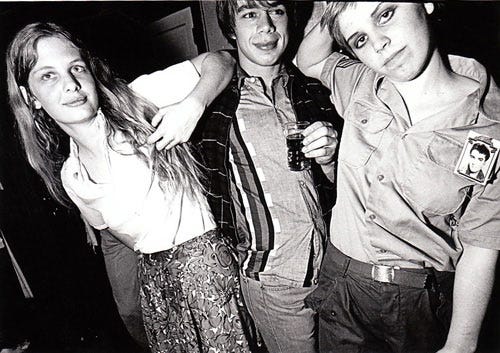
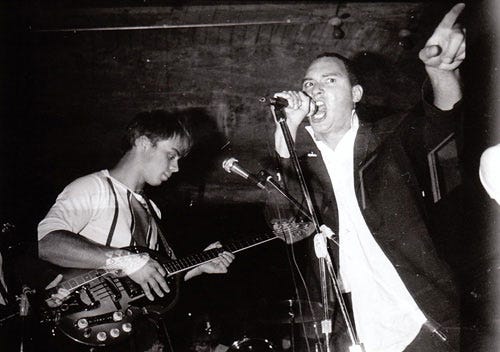
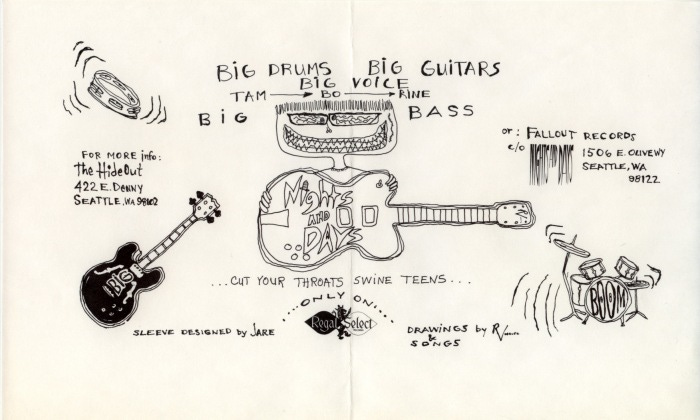
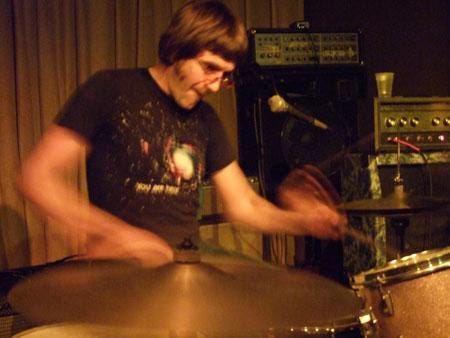
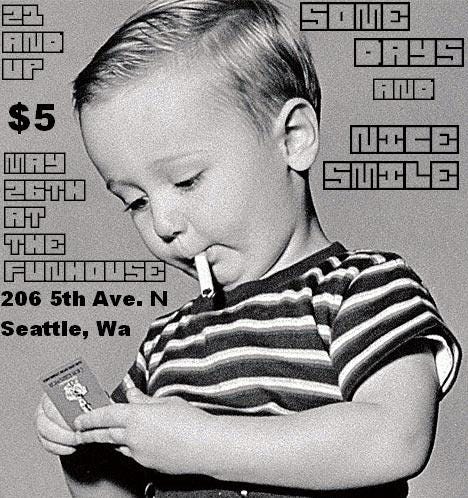
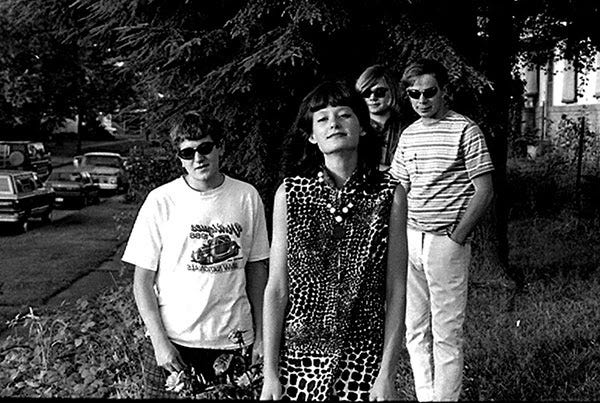
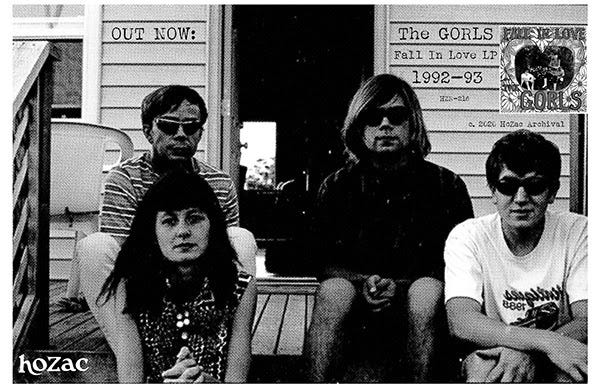
This is great Shit. Rob Vasquez is a near-lifelong inspiration to me and I'll gobble up anything that gets released. Love the Gorls record that came out recently. I have some of the old little fanzines that Dawn Johnson put out somewhere; I wrote letters to them to get them.
Very cool, Aaron! That's amazing that some of this stuff is coming out.